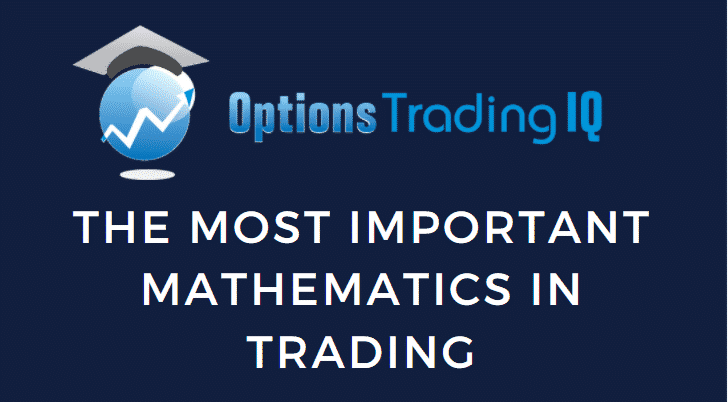

Today we’ll discuss the most important trading math.
Some simple pieces of information and basic arithmetic will help you become a better trader.
Contents
As an investor, you’ll probably get used to dealing with a lot of numbers when trading in the investment markets.
We will explore some of the most important numbers that you will deal with regularly as an investor and take a general look at the most important mathematics that interact with the world of investing.
Mathematics is naturally a part of investing because investors constantly balance important information from investment markets in real time.
We will now explore some of these important pieces of information and how they can impact you as an investor.
Stop Losses
Every investor that trades in the short-term will likely be interested in setting ‘stop losses’ on their trades.
A ‘stop loss’ is a price target that the investor sets to initiate a sell order to prevent additional losses if a stock falls below a specific price.
For example, if you purchased a stock at $4.10 and didn’t want to lose more than $0.10 per share, you could set a ‘stop loss’ at $4.00.
If the stock price reaches $4.00 or below, your order will instantly initiate, and you will be liquidated from your position.
This is undoubtedly one of the most important mathematical terms in the world of trading.
Profitable Trade Percentage
An investor’s ‘profitable trade percentage’ is the general percentage of trades that result in a profit.
This number can be incredibly important for planning out trading strategies and finding ways to generate as many profits as possible.
Investors of all skill levels should factor their profitable trade percentage into their strategy to try to improve it and conduct more trades with a profitable result.

Annual Return Percentage
The annual return percentage is more common for traders that take part in longer-term trades.
For example, you might ask your portfolio’s annual return percentage after holding an index fund for an entire year.
Once you start comparing your growth on an annual average basis, you can start to plan out how much you might have by your retirement age if trends in the stock market continue for long periods of time.
Final Thoughts
These three concepts are only a few of the important mathematical factors that you will deal with when trading in the stock market.
It is important to get comfortable with these factors because they can significantly impact your overall success.
You will likely learn many more formulas and equations that can come in handy for investors.
Once you start getting comfortable with the mathematics in the world of trading, you will continue to gain a lot of experience and become a better trader as a result.
Trade safe!
Disclaimer: The information above is for educational purposes only and should not be treated as investment advice. The strategy presented would not be suitable for investors who are not familiar with exchange traded options. Any readers interested in this strategy should do their own research and seek advice from a licensed financial adviser.










